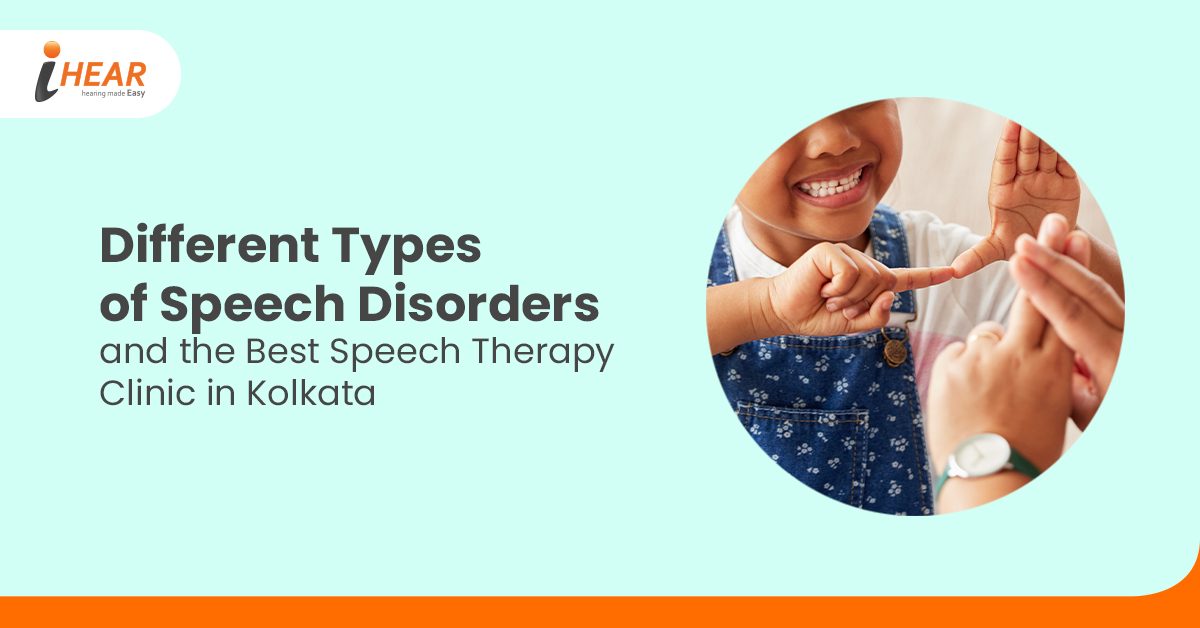Different Types of Speech Disorders and the Best Speech Therapy Clinic in Kolkata
Speech disorders encompass a range of issues that affect a person’s ability to produce sounds correctly or fluently, or to use their voice properly. These disorders can result from various causes, including neurological conditions, developmental issues, physical abnormalities, and psychological factors. Here is an overview of some common types of speech disorders:
- Articulation Disorders:
Articulation disorders involve problems with making sounds. Sounds may be substituted, left off, added, or changed. For instance, a child might substitute sounds (saying “wabbit” instead of “rabbit”) or distort sounds (producing a slushy “s” sound). These errors can make it difficult for others to understand the person. Causes can include developmental delays, structural abnormalities (like cleft palate), or hearing impairments. - Phonological Disorders:
Phonological disorders are a type of speech sound disorder. They involve patterns of sound errors. For instance, a child might simplify a complex sound (saying “tat” for “cat”) or consistently leave off certain sounds. This disorder is related to the linguistic aspect of speech production, where the brain struggles to organize sound patterns correctly. - Fluency Disorders:
Fluency disorders, commonly referred to as stuttering, are characterized by interruptions in the flow of speech. These interruptions can be repetitions of sounds, syllables, or words, prolonged sounds, and abnormal stoppages or blocks of silence. Stuttering can also be accompanied by physical tension, facial grimacing, and secondary behaviors like foot tapping. The exact cause of stuttering is unknown, but it involves a combination of genetic, developmental, and neurological factors. - Voice Disorders:
Voice disorders involve problems with the pitch, loudness, or quality of the voice. This can include hoarseness, breathiness, or loss of voice. Causes can be structural, like vocal cord nodules or polyps, functional, such as vocal misuse or overuse, or neurological, like spasmodic dysphonia. These disorders can significantly affect communication and quality of life. - Apraxia of Speech:
Apraxia of speech is a motor speech disorder where a person has trouble saying what they want correctly and consistently. It’s not due to muscle weakness but a problem in the brain’s planning and programming of speech movements. People with apraxia know what they want to say, but their brain struggles to direct the necessary movements. This disorder can be acquired (due to brain injury) or developmental. - Dysarthria:
Dysarthria is a motor speech disorder resulting from neurological injury. It involves difficulty in controlling the muscles used for speech, leading to slurred or slow speech that can be difficult to understand. Causes include stroke, traumatic brain injury, Parkinson’s disease, multiple sclerosis, and cerebral palsy. The severity and characteristics of dysarthria can vary widely depending on the underlying condition. - Expressive Language Disorder:
An expressive language disorder affects a person’s ability to convey or express information. Individuals with this disorder might have trouble with spoken, written, or other forms of language. They might have a limited vocabulary, find it difficult to form sentences, or struggle with word retrieval. This can result from developmental delays, intellectual disabilities, or brain injuries. - Receptive Language Disorder:
Receptive language disorder is characterized by difficulty understanding and processing language. Individuals may have trouble following directions, understanding questions, or comprehending spoken language. This disorder can occur alongside expressive language disorder and can be due to various factors, including developmental issues and neurological conditions. - Mixed Receptive-Expressive Language Disorder:
This disorder involves difficulties in both understanding and producing language. Children with this disorder might have problems with vocabulary, sentence structure, and conversational skills. The causes can be multifactorial, including genetic factors, brain injuries, or other developmental disorders. - Selective Mutism:
Selective mutism is a complex childhood anxiety disorder characterized by a child’s inability to speak in certain social situations despite being able to speak comfortably in others, typically with close family members. It is not a speech or language disorder per se but a condition related to anxiety. The child’s inability to speak is often rooted in fear of social embarrassment or severe anxiety. - Aphasia:
Aphasia is an acquired communication disorder that impairs a person’s ability to process language, but does not affect intelligence. It is typically caused by brain damage from a stroke or traumatic injury. Aphasia can affect various aspects of language, including speaking, understanding speech, reading, and writing. There are different types of aphasia, such as Broca’s aphasia (non-fluent aphasia) and Wernicke’s aphasia (fluent aphasia), each with distinct characteristics.
Treatment and Management
Treatment for speech disorders varies depending on the type and severity of the disorder. At the Best Speech Therapy Clinic in Kolkata, speech-language therapy is the most common treatment approach, involving exercises and activities designed to improve specific speech and language skills. In some cases, alternative communication methods, such as sign language or communication devices, may be used. Early intervention is crucial, especially for children, as it can significantly improve outcomes. For voice disorders, medical or surgical interventions might be necessary alongside therapy.
For those seeking comprehensive care in audiology and speech therapy, Audiology & Speech Therapy in Kolkata provides a range of services to address various needs. Additionally, the Best Hearing Aid Centre in Kolkata offers advanced solutions for hearing impairments, ensuring that individuals receive the best possible care for both speech and hearing-related issues.
Speech disorders can significantly impact a person’s ability to communicate and interact with others. Understanding the various types of speech disorders is essential for diagnosing and developing effective treatment plans. With appropriate intervention and support, individuals with speech disorders can improve their communication skills and enhance their quality of life.

